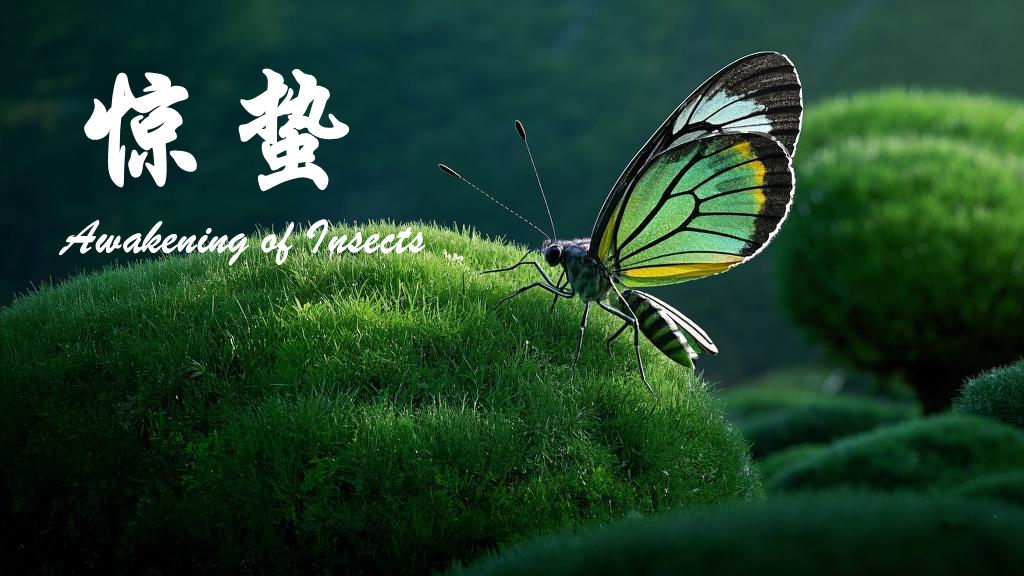
Jingzhe, or the Awakening of Insects, marks the third of China’s 24 solar terms, signaling the transition from winter stillness to spring vitality. Usually starting around March 5, this period is named for the belief that spring thunder “startles” hibernating (冬眠) creatures. In reality, insects emerge not from fear of thunder but due to rising temperatures. Jingzhe also announces the start of critical agricultural activities and carries unique cultural traditions.
1.1. According to the text, why do insects emerge during Jingzhe?
A They are frightened by the spring thunder.
B The temperature increases significantly.
C Farmers start plowing fields nearby.
D Fish migration disturbs their habitats.
解析:选B。B 细节理解题。文章第一段中明确提到“In reality, insects emerge not from fear of thunder but due to rising temperatures.”说明昆虫苏醒是因气温上升,而非雷声。故选B。
2.2.Which of the following sentences can be put in the “ ▲ ”?
A The spring thunder is most noticeable during Jingzhe.
B Dry weather makes people feel thirstier than usual.
C Although it gets warmer, the air can still be chilly.
D Wind during Jingzhe is an important factor in weather forecasting.
解析:选A。A 推理判断题。根据题空后文内容,现代气象科学解释了这一现象的原因:在惊蛰期间,地球变得湿润,地表附近的热空气上升;与此同时,来自北方的湿热空气很强,经常产生大风。因此,在这段时间会出现雷声。由此可知,题空处表达“惊蛰期间春雷最为明显”。故选A。
3.3.The underlined word “abundance” in Para. 3 probably means _________.
A occasion
B moment
C response
D harvest
解析:选D。D 词义猜测题。根据第三段第一句“Jingzhe is a golden window for spring plowing.”惊蛰是春耕的关键窗口期,农民们知道,及时的耕种能够带来秋季的大丰收。由此可知,abundance表示“收获,丰收”。故选D。
4.4.What can be inferred about eating pears during Jingzhe?
A It is only practiced in rural areas.
B It originated from modern medical advice.
C It is the main food source for farmers.
D It combines health benefits with cultural symbolism.
解析:选D。D 推理判断题。文章最后一段中提到,吃梨既可缓解喉咙痛(实际用途),又因谐音“离”象征驱虫、谐音“犁”象征丰收(文化意义),既有健康益处,又有文化象征意义。故选D。